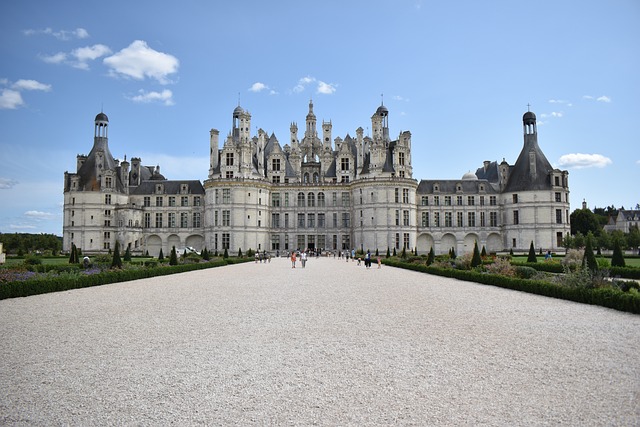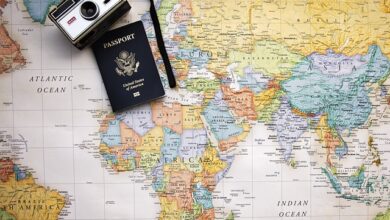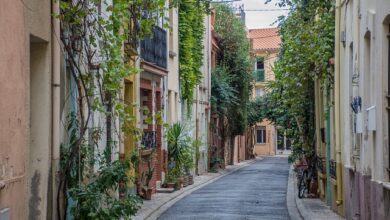How to Travel Around France on a Budget

France, with its rich history, stunning architecture, world-class cuisine, and picturesque landscapes, is a dream destination for travelers. However, many people assume that exploring this beautiful country requires a hefty budget. The good news is that traveling around France doesn’t have to break the bank! With some careful planning and insider tips, you can experience all the charm of France without overspending. In this guide, we’ll show you how to travel around France on a budget while still enjoying everything it has to offer.
1. Plan Your Trip During Off-Peak Seasons
One of the easiest ways to save money when traveling to France is by avoiding peak tourist seasons. Summer months (June to August) are the busiest times in France, especially in popular destinations like Paris, Provence, and the French Riviera. Prices for accommodation, flights, and attractions skyrocket during these months. Instead, consider visiting during the shoulder seasons—spring (April to early June) or fall (September to November). Not only will you find cheaper deals, but you’ll also avoid large crowds and enjoy milder weather.
- Pro Tip: Winter can be an excellent time to visit if you’re looking for even lower prices, though some rural areas may be less accessible due to snow.
2. Choose Affordable Accommodation Options
Accommodation costs can quickly add up, so finding budget-friendly lodging is key. Here are some options to consider:
- Hostels: Hostels are not just for backpackers—they’re a great way to meet fellow travelers and save money. Many hostels in France offer private rooms as well as dormitory-style accommodations.
- Guesthouses (Chambres d’Hôtes): These small, family-run bed-and-breakfast establishments provide a cozy and authentic experience at reasonable rates.
- Couchsurfing: If you’re comfortable staying with locals, Couchsurfing allows you to stay for free while connecting with residents who can share their local knowledge.
- Airbnb: Renting an apartment through Airbnb can be cost-effective, especially if you’re traveling with a group or plan to cook your own meals.
- Camping: France boasts thousands of campsites, from basic pitches to luxury glamping options. Camping is particularly popular along the coast and in rural regions.
3. Use Public Transportation Wisely
France has one of the most efficient public transportation systems in Europe, making it easy to get around without renting a car. Here’s how to navigate the country affordably:
- Trains: The SNCF (French National Railway Company) operates high-speed TGV trains, regional TER trains, and night trains. Booking tickets in advance can significantly reduce costs. Consider getting a rail pass if you plan to cover long distances.
- Buses: Companies like FlixBus and Ouibus connect major cities and towns at very affordable prices. Buses are slower than trains but often much cheaper.
- City Transport: Most French cities have reliable metro, tram, and bus networks. Purchase multi-day passes to save money on urban transport.
- Walking and Cycling: Many French towns are pedestrian-friendly, and cycling is encouraged in cities like Lyon and Bordeaux. Take advantage of bike-sharing programs like Vélib’ in Paris.
4. Eat Like a Local
French cuisine is renowned worldwide, but dining out every day can drain your wallet. To eat affordably:
- Visit Markets: Street markets and grocery stores sell fresh produce, cheese, bread, and other staples at bargain prices. Picnics in parks or scenic spots are both economical and enjoyable.
- Try Boulangeries and Cafés: Bakeries offer delicious baguettes, pastries, and sandwiches at low prices. Cafés often serve simple yet satisfying meals like quiches or salads.
- Look for Fixed-Price Menus: Many restaurants offer “menu du jour” (daily specials) or set menus that include multiple courses at a fixed price. This is usually more affordable than ordering à la carte.
- Avoid Touristy Areas: Restaurants near major landmarks tend to charge inflated prices. Venture a few blocks away to discover hidden gems where locals dine.
5. Explore Free or Low-Cost Attractions
France is full of incredible sights that won’t cost you a penny—or very little. Some ideas include:
- Free Walking Tours: Cities like Paris, Lyon, and Marseille offer free walking tours led by knowledgeable guides. You simply tip what you feel is appropriate.
- Parks and Gardens: From the Luxembourg Gardens in Paris to the Promenade des Anglais in Nice, France’s green spaces are perfect for relaxing and soaking in the atmosphere.
- Museums and Monuments: Many museums offer free entry on the first Sunday of each month or during European Heritage Days in September. Students and young adults often qualify for discounted tickets.
- Churches and Cathedrals: Iconic religious sites such as Notre-Dame Cathedral, Sacré-Cœur Basilica, and Saint-Tropez Church are free to enter and awe-inspiring to explore.
6. Take Advantage of Discounts and Passes
Several passes and discounts can help you stretch your budget further:
- Youth and Student Discounts: If you’re under 26 or a student, you may be eligible for reduced admission fees at museums, monuments, and transportation services.
- Paris Pass: This card grants access to over 60 attractions and includes unlimited use of public transport within Paris.
- Museum Pass: Available for different durations, this pass provides entry to numerous museums and monuments across France.
- Senior Discounts: Travelers over 60 can often benefit from special rates on trains, hotels, and cultural activities.
7. Embrace Slow Travel
Instead of rushing through multiple cities, focus on a few regions and immerse yourself in their unique culture and lifestyle. Slow travel reduces transportation expenses and gives you a deeper appreciation of each place. For example, spend a week exploring Provence’s lavender fields, vineyards, and charming villages instead of hopping between five different regions.
8. Learn Basic French Phrases
While English is widely spoken in tourist areas, knowing a few French phrases can go a long way. Locals appreciate visitors who make an effort to speak their language, which can sometimes lead to better service or even small discounts.
9. Pack Smartly
Traveling light saves money on baggage fees and makes it easier to use public transport. Additionally, packing versatile clothing suitable for various weather conditions ensures you won’t need to buy extra items during your trip.
10. Be Flexible and Open-Minded
Finally, flexibility is key to budget travel. Be open to changing plans based on last-minute deals, unexpected opportunities, or recommendations from locals. Sometimes the best experiences come from spontaneity!



